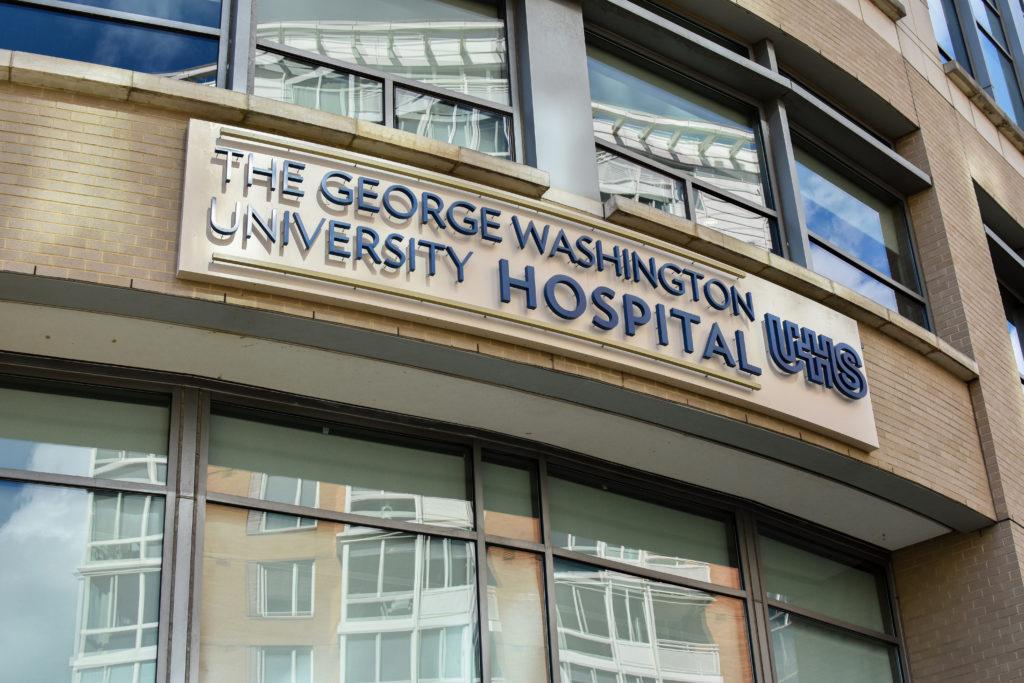A patient in the GW Hospital was refused testing for COVID-19 after she spent time in South Korea late last month and developed respiratory symptoms.
Maggie McDow, a strategic partnerships manager at the rainforest preservation nonprofit Health and Harmony, wrote in a Facebook post Saturday that D.C. Department of Health staff refused to test her for COVID-19 because she had not spent enough time in South Korea. McDow said she connected through a South Korean airport on her way to Thailand and began experiencing chest congestion, coughing and shortness of breath Tuesday.
“Do I have COVID-19?” McDow said in the post. “Who knows. Do we have a broken public healthcare system that is utterly failing during a health pandemic? Absolutely.”
She said she spoke with a man from the D.C. health department Tuesday who took down a “detailed” history of her symptoms and travel history and recommended that she limit her interactions with others, wash her hands frequently and wear a mask in public.
https://www.facebook.com/maggie.s.mcdow/posts/10222462869227484
The representative from the health department said the department would monitor her case, she said.
After her symptoms worsened Wednesday night, McDow said she spoke to a different official from the D.C. health department unfamiliar with her case who told her she did not need to self-quarantine and to treat her illness like a cold or the flu. She said the woman directed her to ask her doctor to recommend that she be tested, but McDow said the doctor told her that her office lacked the “capacity” to deal with COVID-19 and directed her to go to the emergency room.
South Korea is under the Center for Disease Control and Prevention’s Level Three risk category, which advises Americans to avoid any non-essential travel to the country. Officials are requiring students returning to the U.S. from South Korea to “self-isolate” for 14 days.
“I asked her whether I should extend my self-quarantine since I am now displaying symptoms, and she said ‘no,’ that I don’t need to self-quarantine, and that I should treat it just like if I had a cold or the flu,” McDow said, referring to the health department worker she contacted. “I can go out in public just try not to cough on anyone and wash my hands a lot. I was stunned.”
McDow said she arrived at GW Hospital’s emergency room Friday, where a doctor administered tests for viral illnesses like influenza that came back negative, which led the doctor to tell McDow she would test her for COVID-19. McDow said the doctor told her she had a high likelihood of having COVID-19 based on her travel history, symptoms and negative test results.
After “several” hours, McDow claimed that her doctor said the D.C. health department was “refusing” to administer the test. She said she was discharged from the hospital the same day, but her doctor told her to return for treatment if her symptoms worsened.
“She was furious,” McDow said about her doctor. “She said she was still trying to get them to change their mind. She got the chief of staff involved. She kept trying. Nothing.”
McDow was not immediately available for comment.
Anjali Talwalkar, the principal senior deputy director for D.C. Department of Health, said at a press conference with Mayor Muriel Bowser that the patient did not fit the CDC’s criteria for COVID-19 testing because she had only been to a South Korean airport and did not venture elsewhere in the country.
McDow’s complaints about D.C.’s testing standards come as Bowser confirmed the first presumptive positive case of the novel coronavirus, a rector at a Georgetown Episcopal church.
Administrators informed students in an email Saturday that 30 students who attended the American Israel Public Affairs Committee policy conference earlier this month were not at risk of contracting the disease. Two other attendees to AIPAC’s conference in D.C. have tested positive for COVID-19.
The email states that public health officials determined that the two individuals did not present symptoms while in the District and current information indicates there is no “identifiable risk” posed to anyone who interacted with them at the conference.
Officials said they provided students who attended the conference space to self-quarantine in a separate email sent to the GW community early Saturday morning. After conferring with D.C. Department of Health and public health experts at GW, administrators have determined that there is no “current need” for attendees to continue to self-quarantine, the email states.
“We appreciate the flexibility of the students to rearrange their plans so that they could help keep their friends and community healthy,” the email states. “In every community there are those who may be more vulnerable because of underlying health issues.”





